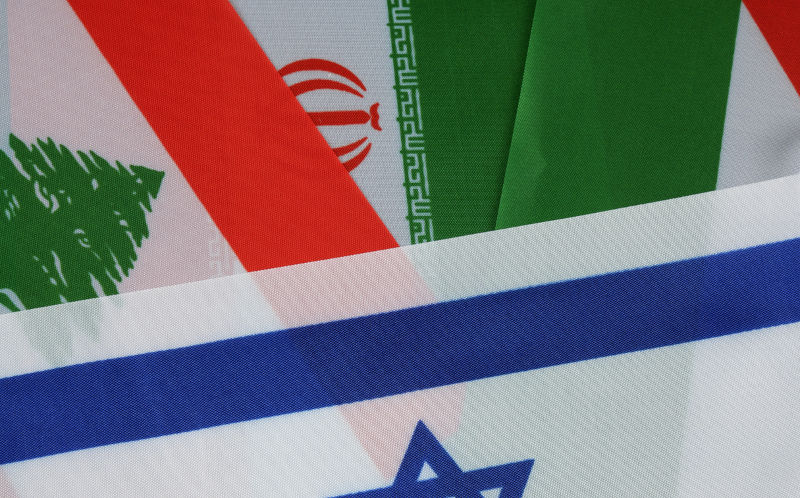Over the years I’ve learnt to chew and walk at the same time. It’s taken a while, but I think I’ve mastered it. Being able and willing to condemn the actions of Hamas, and criticising Iran while also condemning the callousness of Israel’s incursions into Gaza, the West Bank and now Lebanon is something I think most reasonable people can and should do.
In recent days I’ve been stunned by the number of commentators who seem utterly incapable of entertaining this wider view. Surely international law, justice and humanity should be the yardsticks by which we judge the actions of the governments and nation states? You can’t be selective about this, – can you? Yet sadly, people are.
More often than not, mourning the loss of life at the hands of Hamas on 7 October occurs with scant regard for the consequent cruelties being inflicted on the Palestinian people. It’s tempting to call this a blinkered outlook, or as privileging one form of suffering over another. At worst, it’s callous indifference. But it happens all the time.
Take the current onslaught against Hezbollah. The rationale appears to be that the Israeli government wants to secure the right of its citizens to return to safety in the border region. Laudable though this might appear, it rubs against the realities facing Palestinians over the past 75 years: the forced removal of three quarters of a million people from their homes in 1948 and the ongoing mass displacement in the West Bank. It ignores too that most Gazans have no homes to go back to, and that they are bludgeoned and starving.
This sort of hypocrisy runs deep in much of the official discourse. It’s as if we’ve entered a hyper reality. So it is that the US claims moral rectitude – calling for a ceasefire and expressing faux angst over “too many civilian casualties” – while supplying the very weapons causing the bloodshed and destruction. And then there’s the splintering of truth – the sustained and coordinated attempt to equate any criticism of Israel with antisemitism. The latter is now used with such arbitrariness that it has lost its meaning, other than to styme any criticism of the Israeli state. To be sure, as professor Phillip Mendes makes clear in an interview with the Sydney Morning Herald, it is vital to hold the Israeli government to account without slipping into anti-Jewish tropes. Sadly, the latter happens too often.
At the same time however, the accusation of antisemitism should not be used as a blunt instrument. British author, Howard Jacobson has fallen into this trap in a recent Observer article in which he equates the very mention of child deaths in Gaza with blood libel – a view rightly excoriated by journalist, Jonathan Cook.
We’ve seen too how universities and other institutions have adopted sweeping definitions of antisemitism that equate criticism of the Israeli government with antisemitism. The upshot is the undermining of open debate and academic freedom. This slow strangulation of public discourse feels increasingly like being coerced into seeing, speaking and hearing no evil.
One of the most telling instances of this occurred when political scientist and activist Norman Finkelstein, in response to historian Benny Morris, cited report after report by respected international NGOs highlighting the indiscriminate slaughter of Gazans by the Israeli military, only for professor Morris to chuckle, “I think you read too much”. That a once respected historian could stoop to such a level in front of millions of people (on Piers Morgan Uncensored) seemed hugely significant. It seems that Morris has utterly abandoned his commitment to carefully documented evidence, preferring instead to prosecute the official line.
Such differences are emblematic of a much wider problem of knowledge production. As Yuval Noah Harari points out in Nexus: A Brief History of Information Networks from the Stone Age to AI, we’re awash with wild, largely unregulated and distorted information that not only befuddles the mind, leading to a kind of intellectual stupor, but which also obscures any sense of what might constitute the truth. That’s the point, of course, as the pathological lying of Donald Trump attests. The objective is to create an anything goes moral void that can be filled with all manner of nonsense, in the literal sense of that word.
As philosopher Hannah Arendt pointed out: “The result of a consistent and total substitution of lies for factual truth is not that the lie will now be accepted as truth and truth be defamed as a lie, but that the sense by which we take our bearings in the real world—and the category of truth versus falsehood is among the mental means to this end—is being destroyed.” And so it is that in Austria, a far-right leader can brazenly lie about the climate catastrophe or the threat posed by migrants, or that in the US, Haitian migrants can be accused of eating their neighbours’ pets. The end result is a ratcheting up of hatred with real-life consequences for those besmirched.
Somehow in the midst of all this we have to bind the threads that approximates to a truth. The problem, as Harari points out, is that few of us have the skill or expertise to do so. And that makes us prey to the weird, ridiculous and power-hungry.
As Gideon Polya has noted, there is lying by omission and lying by commission. If we knowingly or otherwise privilege the suffering of our own, our brethren, over others then we offer up a skewed, self-serving story. If we deliberately deny the evidence before us, evidence repeated over and over, then we too engage in a form of deliberate deceit. Our guide in all commentary on the Middle East should be the right of all people to be treated with dignity and kindness.
Anything less is cruelty.
Adjunct Professor, School of Health Sciences and Social Work,
Griffith University (Gold Coast Campus).
Adjunct Professor, Southern Cross University, Faculty of Business, Law and Arts.

